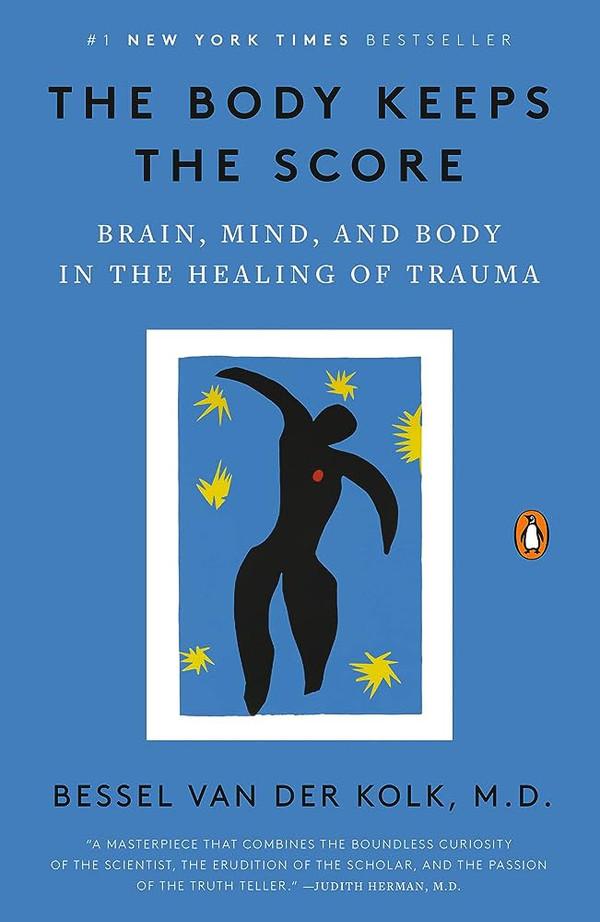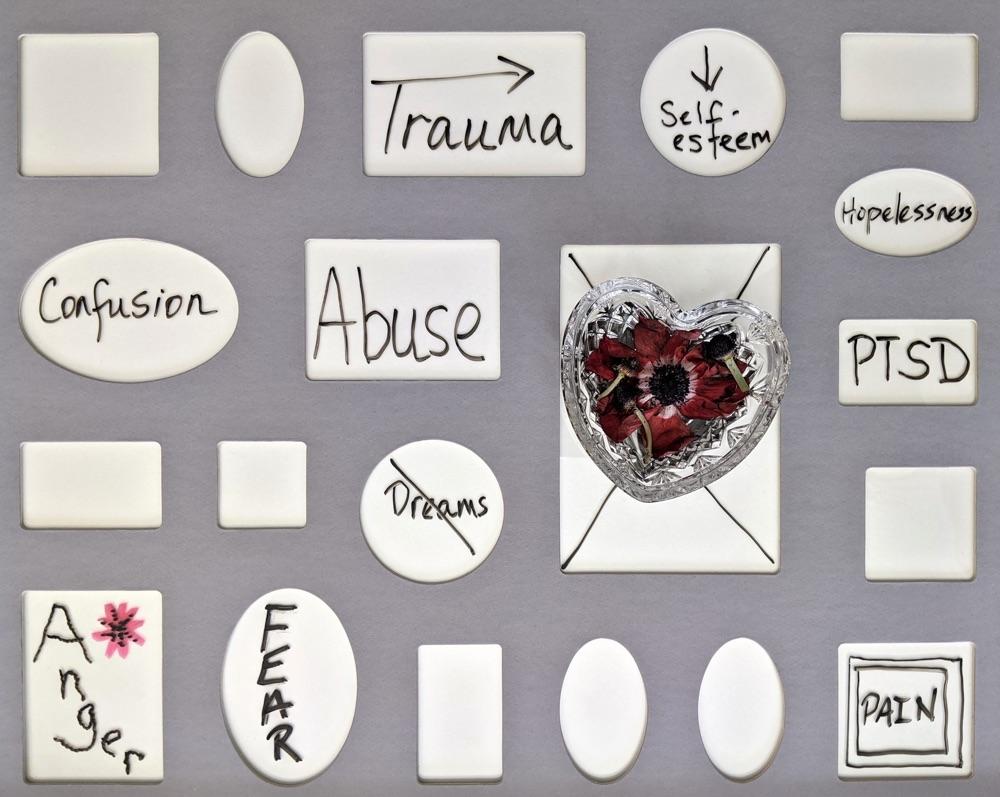Michelle Ashen's Key Ideas from The Body Keeps the Score
by Bessel van der Kolk
Ideas, facts & insights covering these topics:
11 ideas
·56.2K reads
254
5
Explore the World's Best Ideas
Join today and uncover 100+ curated journeys from 50+ topics. Unlock access to our mobile app with extensive features.
Brain, Mind, and Body in the Healing of Trauma
The book delves into the ways that trauma can affect the body and mind, and how it can be treated.
1. The Nature of Trauma: Dr. van der Kolk begins by explaining what trauma is and how it can shape an individual's brain, body, and perception of the world.
2. Brain Changes: Trauma can alter the brain's structure and function. The author delves into how different areas, like the amygdala and prefrontal cortex, are impacted by traumatic experiences.
3. Survival Mechanisms: Traumatized individuals may exhibit behaviors such as dissociation or freezing as a way to cope with threatening situations.
899
8.68K reads
The Impact of Trauma
4. Developmental Trauma: The book also covers the impact of trauma on children and how early traumatic experiences can shape the developing brain and influence adulthood.
5. Paths to Recovery: Dr. van der Kolk outlines various therapeutic approaches that can be effective in treating trauma. This includes talk therapy, EMDR (Eye Movement Desensitization and Reprocessing), neurofeedback, yoga, and more.
6. The Social Aspect: emphasizes the importance of community and social connection in healing trauma.
837
6.2K reads
Understanding Trauma
“Trauma results in a fundamental reorganization of the way the mind and brain manage perceptions.”
Trauma reshapes our cognitive framework, affecting how we perceive and interact with the world. Recognising this helps in understanding behaviours in oneself and others. Leaders should approach their team members with empathy, knowing that past traumas might influence their reactions.
869
5.73K reads
The Mind-Body Connection
“As long as you keep secrets and suppress information, you are fundamentally at war with yourself…”
Denial or suppression of one's feelings or experiences creates internal conflict. For holistic well-being and effective leadership, it's crucial to acknowledge and address both mental and physical responses to experiences. Internal alignment leads to authentic and effective external interactions.
929
5.41K reads
Impact of Childhood Experiences
“Children are biologically programmed to grow best in the care of a committed caregiver.”
Our early years shape our adult responses. Leaders should recognize that early nurturing—or lack thereof—can deeply impact a person's ability to trust and collaborate. Creating a supportive environment can help individuals thrive.
830
4.97K reads
The Importance of Safety
“Being able to feel safe with other people is probably the single most important aspect of mental health…”
Safety and trust form the foundation for mental health and productive relationships. Leaders must prioritise creating a safe space where team members feel valued and understood, leading to better collaboration and innovation.
856
4.51K reads
Adapting to Stress
“Social support is not the same as merely being in the presence of others…”
Merely being surrounded by people doesn't ensure emotional well-being; genuine connections do. Leaders should foster meaningful interactions, ensuring everyone feels heard and valued, enhancing overall team cohesion and performance.
848
4.39K reads
Neuroplasticity and Change
“Neuroplasticity is an intrinsic property of the human brain…”
The brain's ability to reorganize itself means individuals can learn and adapt throughout life. Leaders can foster a growth mindset, emphasizing continuous learning and adaptation, benefiting both personal and organizational growth.
812
4.27K reads
The Role of Relationships
“In order to change, people need to become aware of their sensations…”
Personal growth is intertwined with our interactions and experiences with others. Leaders can facilitate change by encouraging self-awareness and nurturing positive interpersonal dynamics.
812
4.07K reads
Presence and Mindfulness
“Mindfulness not only makes it possible to survey our internal landscape…”
Being present and self-aware are crucial for personal well-being and effective leadership. Encouraging mindfulness can help individuals respond rather than react, leading to better decision-making and interactions.
826
3.86K reads
Resilience and Growth
“Being able to move and breathe freely – the way you did when you were a child – can profoundly enhance your sense of vitality…”
Resilience is about reclaiming one's inherent vitality and capacity for growth. Leaders can cultivate resilience by fostering environments where experimentation and learning from failures are encouraged.
839
4.05K reads
IDEAS CURATED BY
With 25 years in marketing, brand strategy, and mental fitness coaching, I focus on societal change, self-mastery, and fostering community to build a regenerative Africa. "The world is changed by your example, not by your opinion." - Paulo Coelho
CURATOR'S NOTE
Every decision of self sabotage and self neglect has an impact. The body keeps the score.
“
Curious about different takes? Check out our The Body Keeps the Score Summary book page to explore multiple unique summaries written by Deepstash users.
Different Perspectives Curated by Others from The Body Keeps the Score
Curious about different takes? Check out our book page to explore multiple unique summaries written by Deepstash curators:
5 ideas
Denise Nayve's Key Ideas from The Body Keeps the Score
Bessel A. Van der Kolk
7 ideas
Iz Zi's Key Ideas from The Body Keeps the Score
Bessel van der Kolk, M.D.
1 idea
Adam Weilacher's Key Ideas from The Body Keeps the Score
Bessel A. Van der Kolk
Discover Key Ideas from Books on Similar Topics
1 idea
It Didn't Start with You
Mark Wolynn
11 ideas
What Happened to You?
Oprah Winfrey, Bruce D. Perry
4 ideas
What It Takes to Heal
Prentis Hemphill
Read & Learn
20x Faster
without
deepstash
with
deepstash
with
deepstash
Personalized microlearning
—
100+ Learning Journeys
—
Access to 200,000+ ideas
—
Access to the mobile app
—
Unlimited idea saving
—
—
Unlimited history
—
—
Unlimited listening to ideas
—
—
Downloading & offline access
—
—
Supercharge your mind with one idea per day
Enter your email and spend 1 minute every day to learn something new.
I agree to receive email updates











